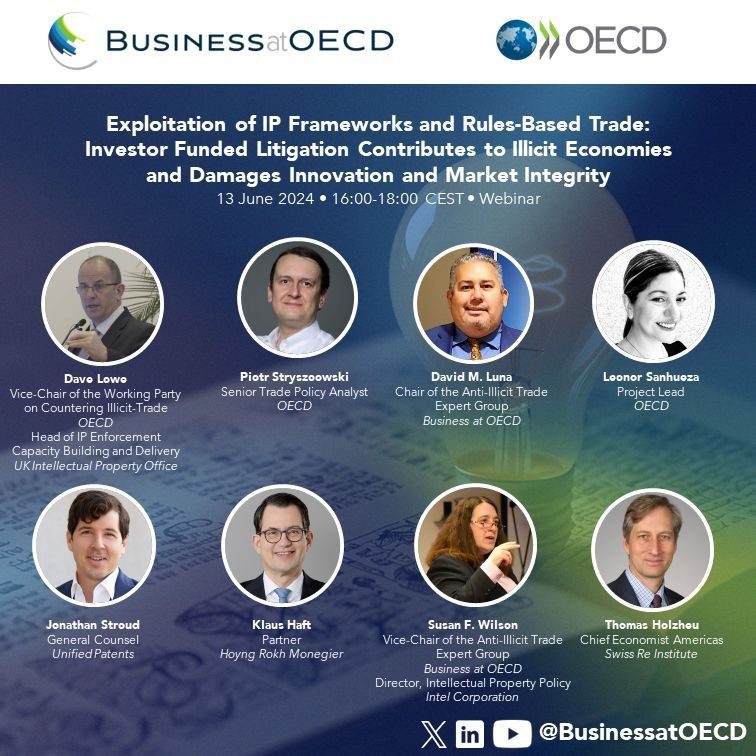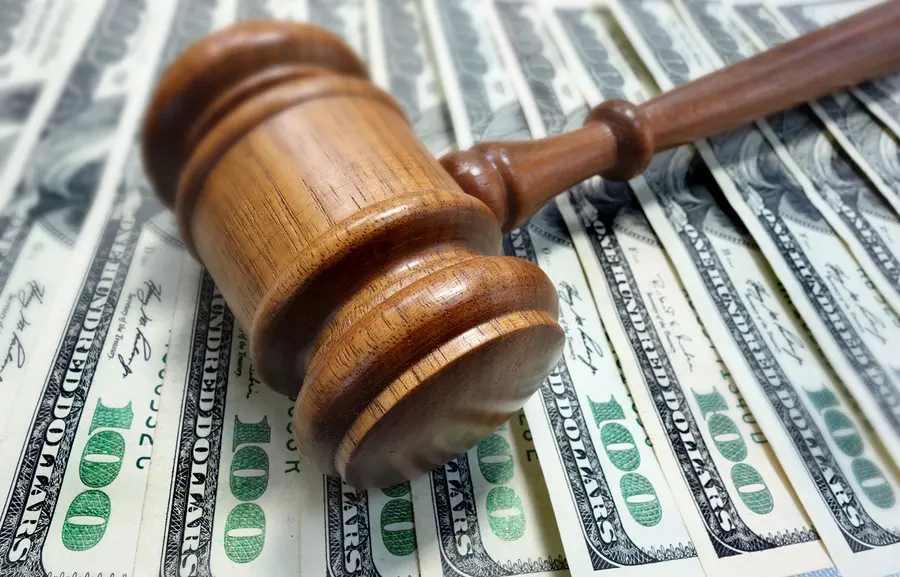National Security Harms: Third Party Litigation Funding Corrodes the Integrity of Rules-Based Trade, the Rule of Law, the Justice Sector, and Open Markets
Remarks and Statement by David M. Luna, Chair of Anti-Illicit Trade Expert Group (AITEG), Business at OECD; and Executive Director, International Coalition Against Illicit Economies (ICAIE)
The reality today in a more complex, dangerous world, is that we are losing market share to criminals, terrorists, illicit threat networks, and their enablers who use the profits from illicit trade to finance greater chaos, corruption, insecurity, and instability.
But of course, it is not only an economic impact, illicit trade also has tremendous human, societal and security costs and consequences.
Today’s bad actors and illicit threat networks co-opt states, infiltrate legitimate industries for diversification, export violence against our societies, and finance conflicts.
Similar to how intellectual property (IP) crime and cross-border financial crime help fuel greater illicit trade, money laundering, sanctions evasion, and foreign corrupt influence, Third Party Litigation Funding (TPLF) also harms the innovative spirit and economic and reputational interests of leading business and industrial firms around the world including the mining of critical minerals, development of medications, and including energy, defense, high-technology, and other sensitive sectors.
The secrecy surrounding TPLF and funding arrangements including through anonymous shell companies makes it impossible to know the precise source of much of the billions of dollars that are flowing into U.S. litigation pursuant to this practice.
However, some public reports estimate that the transnational third-party litigation finance industry attracted more than $15 billion in capital in the United States and is expected to continue to grow steadily at over $40+ billion globally in five (5) years, as some hedge funds, sovereign wealth funds, private equity firms, and other financiers invest in lawsuits in exchange for a percentage of any settlement or judgment.
TPLF is not benign. It is a growing risk to the national security of OECD member states and should be viewed properly as a lucrative illicit enterprise, and in some cases, state sponsored and commercial judicial criminality and terrorism that impacts the integrity of litigation and the justice system.
This is especially true as large foreign-sourced investments and sovereign wealth funds from China, Russia, and the United Arab Emirates (UAE), for example, are pouring into U.S. courts and those in some OECD member jurisdictions via TPLF and related lawfare cases, raise significant national, judicial, and economic security risks that imperil the rule of law and other important policy areas.
Accessing and exploiting the judicial process, such foreign adversaries can instigate such specious and non-meritorious litigation, influence strategy, and encourage and capitalize from commercial disputes involving American companies to obtain proprietary information regarding sensitive technologies in defense-military, technology, and other highly sensitive industries to provide advantage to their home industries.
They are able to gain intellectual property (IP), confidential documents, and trade secrets of U.S. and OECD member state institutions and companies, as well as, operational market strategies and innovations.
As I underscored at our recent plenary meeting of the OECD Working Party on Countering Illicit Trade (CP-CIT), the harms and impacts posed by TPLF to the rules-based international trading system, the rule of law, and market integrity, will only increase and imperil our trade and economic security agenda in the coming years.
Frankly, no industry sector is immune and all points in the global trade supply chain are vulnerable.
Remarks were delivered on June 13, 2024 at a webinar co-hosted by the OECD and Business at OECD (BIAC) entitled, “Exploitation of IP Frameworks and Rules-Based Trade: Investor Funded Litigation Contributes to Illicit Economies and Damages Innovation and Market Integrity”.


